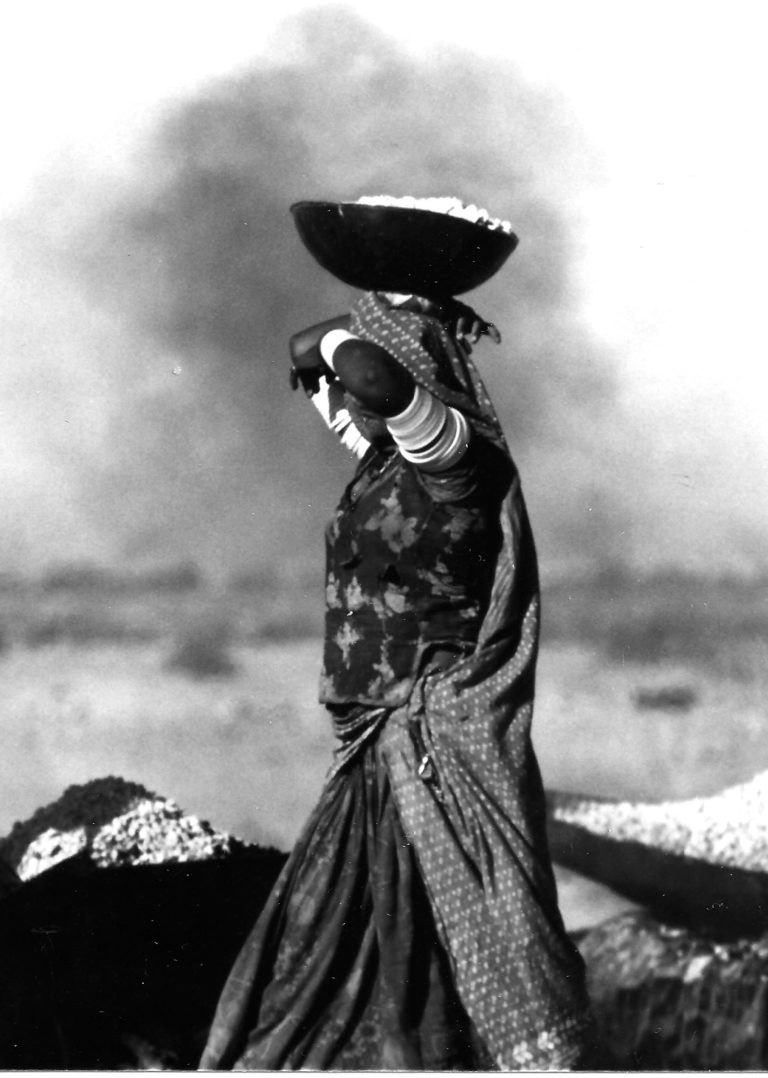
Woman in India carrying gravel on a road project. Author’s photo, 1986.
Column writing is opportunistic. In selecting a topic, I thought of myself as a guy standing on the bank of a river like Huck Finn, waiting for a canoe or a house to float by. Something’s going on — an election, an argument, a contentious study, an outrageous statement — something. Two times a year the river brought nothing: Christmas time and July. Those were the columns I had to pull out of my head — and now that my journalism career is over, they are some of the ones I like best. Here is one that ran in the Seattle Times on July 8, 2009.
Many years ago, I was in a political argument on an Indonesian bus. It was at night on a road through the highlands of Sumatra. A German and I were sparring about why Indonesia was poor.
She was an aristocrat, with a “von” in her name, and a committed Marxist. I was a business reporter, and a good deal more favorable to capitalism. We each explained our thoughts in a story, and our stories were very different.
Mine was about buying a Newsweek in Yogyakarta. The sales clerk took the magazine, wrote out a sales order and directed me to the cashier, where I stood in line and paid. The cashier stapled the receipt to the sales order, handed it to me and directed me to the wrapping clerk. I waited in a second line, handed over my paperwork, and he handed me the magazine, wrapped in brown paper. Taped to it was a carbon copy of the sales order. Total effort to sell me a Newsweek: three workers, ten minutes.
Was the rest of industry in the Third World organized like that? Sometimes it seemed so.
In Kenya I shared a minibus with a retired cement-company man from St. Louis. He was in Kenya to advise a cement company. He was amazed to find that the Kenyan plant employed more workers than his plant in St. Louis, but produced only one-tenth the amount of cement.
I was a tourist; I didn’t visit cement plants. But in travels over the years, I saw some appalling uses of human labor.
At Hue, Vietnam, I saw women standing waist-high in the Perfume River, washing gravel in wicker baskets. In India, I saw men at construction sites with mallets, making gravel. I also saw women carrying that gravel on their heads, in baskets.
Human wheelbarrows.
When Americans think of poor-country labor, they think of Persian rugs. Maybe sport shoes. They
don’t think of making, washing and moving gravel.
Much of sort of work showed the lack of capital. But still…
In Nepal, I watched a three-man crew pave a section of street. Two had shovels and one had a bucket of tar. He plunged a dipper into the tar, withdrew it, and carefully dribbled the tar onto the ground like honey on toast. He made little rectangles. The other guys watched. Then he took a break and the other guys shoveled asphalt. They tamped it down with hand implements, taking their time about it. They did 12 feet the first day, 10 the second and 8 the third.
That was government work. A friend, traveling in India, was invited to see a private fertilizer works. It was a crew of half-naked men shoveling fertilizer into burlap bags.
I recall these scenes not because they are current — they are not — but because they stuck in the mind over the years. This is how people use labor when it is really, really cheap. Whether this is a cause or an effect of poverty, or both, may be debated.
My opponent on the bus had a different story to explain why the country was poor. Hers was about our Mercedes bus. Indonesia had not made the bus. Indonesia mined tin, sold the tin to Germany at a low price, and Germany made it into a bus for sale at a high price. (Wrong metal, but you get the idea.) The bus made Indonesia poor.
No, I said; Indonesia is richer by one bus. But look at the way they use it. In America, a bus has one worker, a driver. Same in Germany. Here there were three: a driver, another guy and the owner, supervising. Waste of labor, I said.
We went round and round, and never did agree on it.
© 2009 The Seattle Times